CNC Machinist Certificate Program
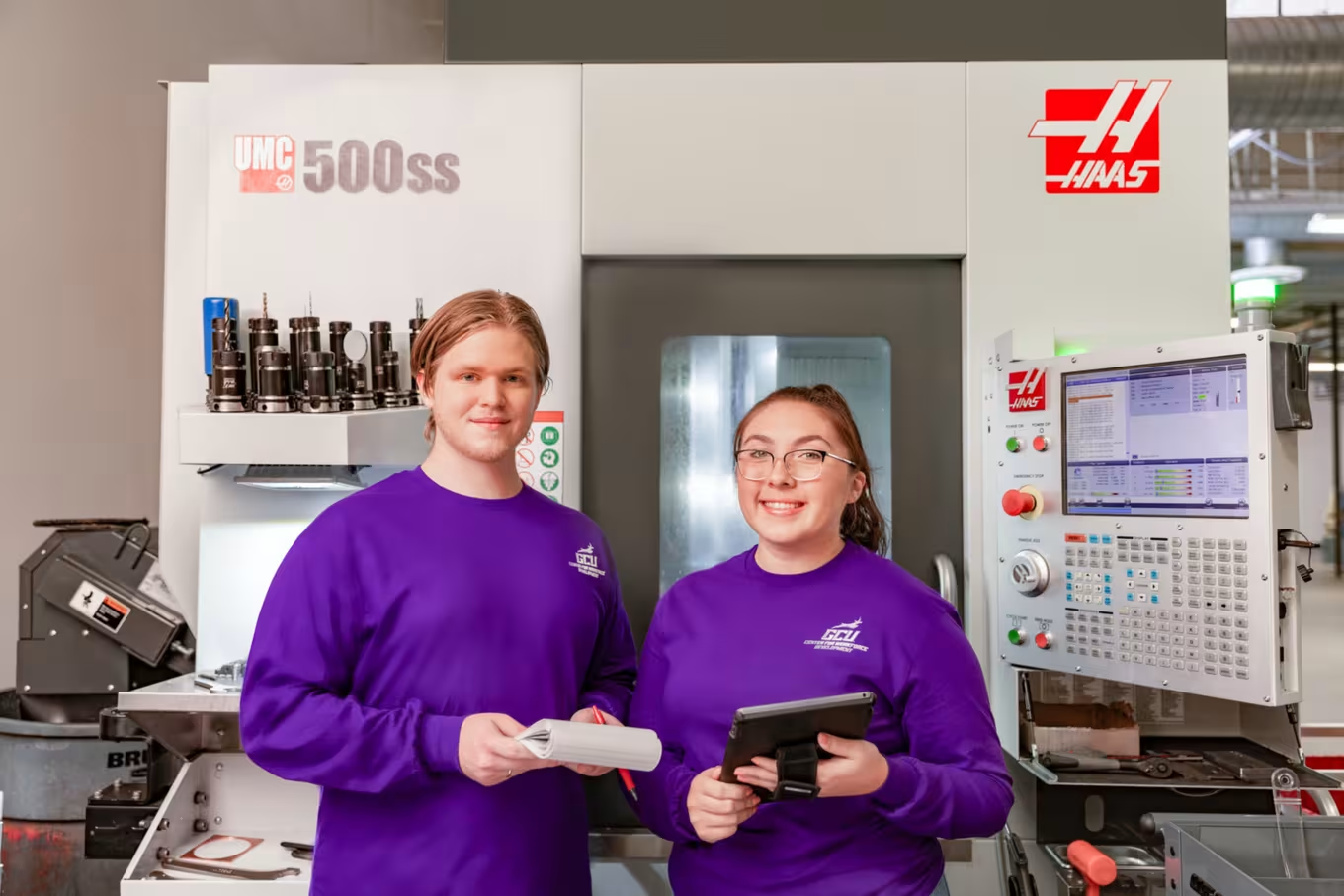
CNC Machinist Certificate Program
journey today.
Embark on a journey into the realm of computer numerical control (CNC) machining with our comprehensive certificate program. With a dedicated focus on mechanics, mathematics, metal properties and essential machining procedures in CNC precision manufacturing, you have the opportunity to cultivate the essential skills required in this field. The program provides a broad overview of the industrial CNC machinist and provides students with a general understanding of business operations and project management.
This CNC certificate program at GCU can be a great option if you are looking to start your professional journey or seeking a new career path.
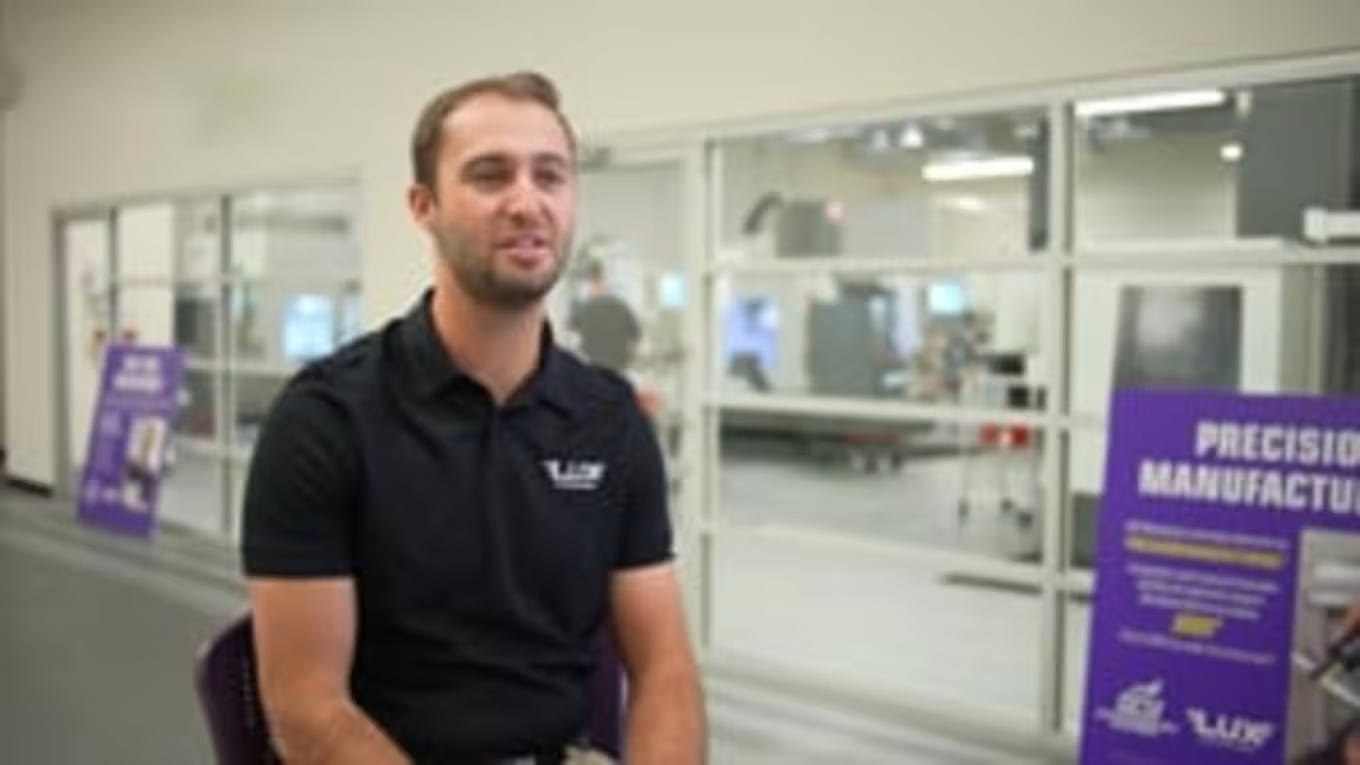
Our CNC machining curriculum is meticulously crafted with subject matter experts and industry leaders to ensure the curriculum meets industry standards and covers the essential skills, practical experiences and knowledge that reflect what individuals and teams will face on the job. You can have confidence in the quality and relevance of the CNC precision manufacturing certificate from GCU.
The CNC program located on the GCU campus will teach curriculum that emphasizes the fundamentals for precise machining operations. By taking CNC training classes on campus, you have the opportunity to benefit from hands-on instruction, networking and collaboration with peers and industry professionals. You will also have access to equipment and facilities that can help further enhance your learning experience and preparation for a career in CNC machining.
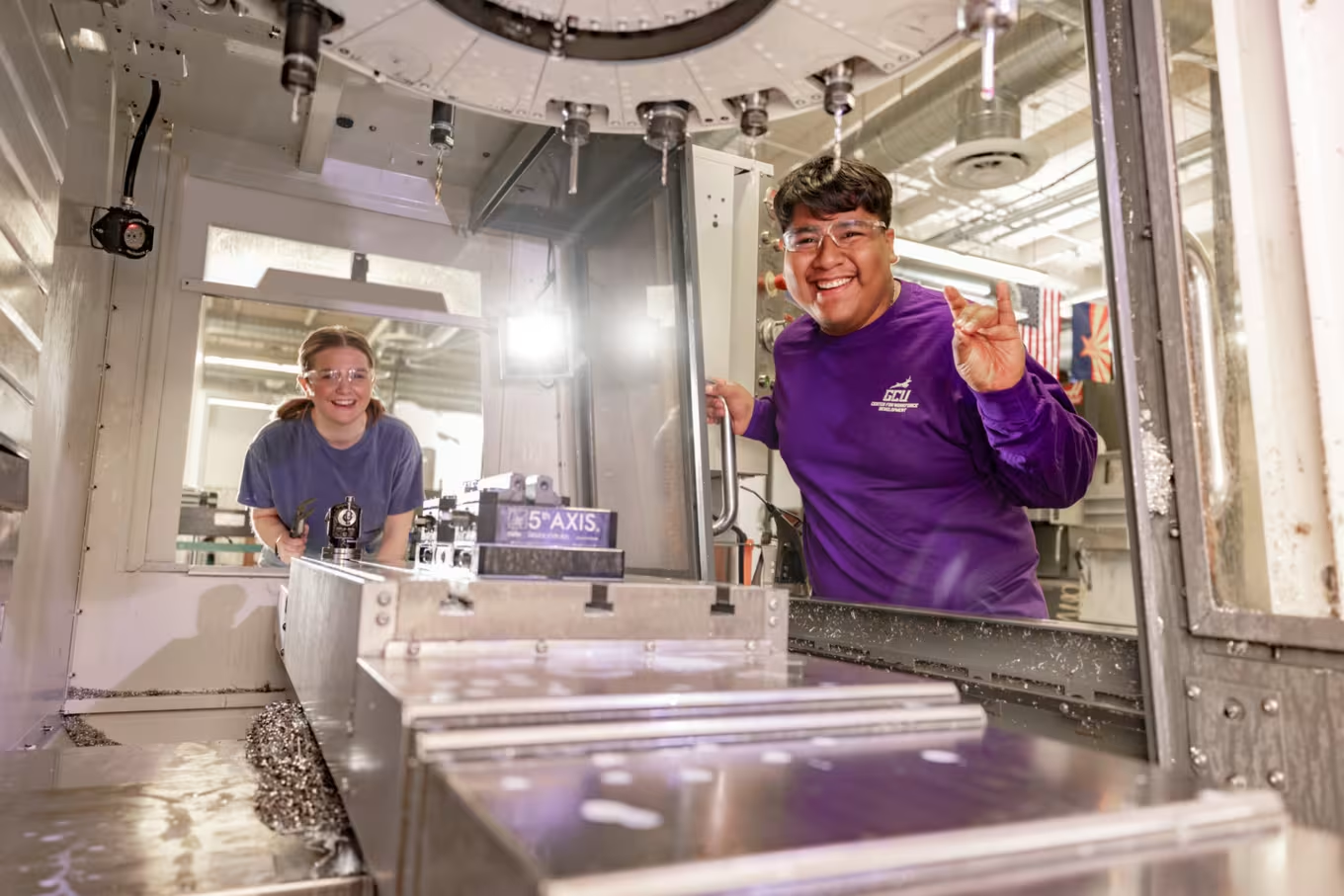
What Is a CNC Certificate?
CNC is a manufacturing process that uses pre-programmed computer software to control the movement of machinery for complex cutting tasks. This process provides precise and repeatable manufacturing of intricate and detailed parts. The CNC machinist certificate requires fewer credits than a degree program and includes core classes covering essential topics on machine operation, programming and setup. This concise four-course certificate can help equip you to operate and maintain CNC machinery, interpret blueprints, craft high-precision parts and more.
Knowledgeable faculty will help guide you through courses that focus on foundational CNC machining principles, progressing toward mastery in machine setup, operation and maintenance. The classes will cover crucial aspects of CNC training, enabling you to operate CNC machinery with confidence and precision. This hands-on curriculum can provide the skills needed to excel in CNC machining, from raw stock to finished products.
Additional coursework and topics you will be taught in the CNC machinist certificate program include the following:
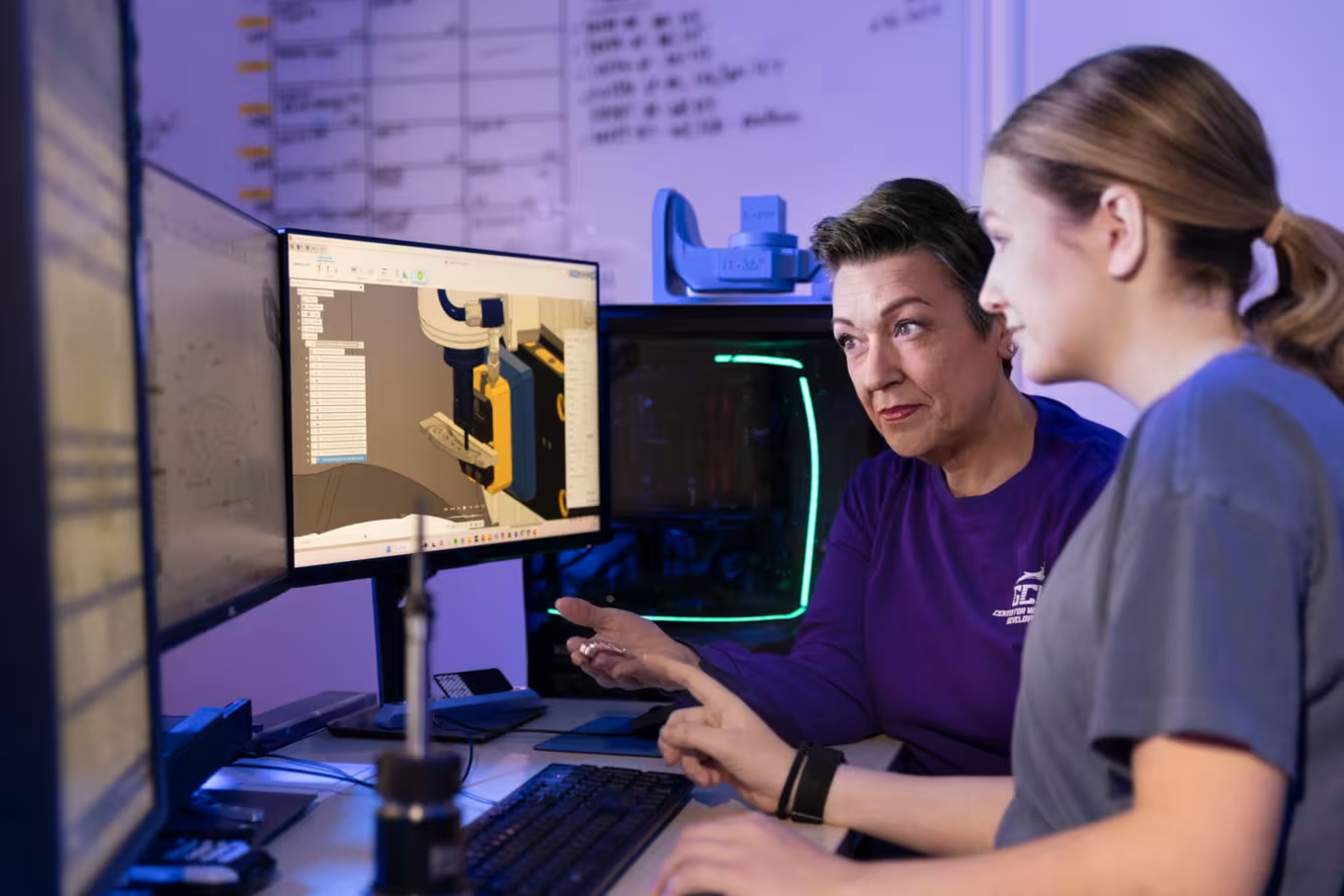
Gain Specialized Engineering Skills
You will be taught the intricacies of CNC machining, mastering the setup and operation of CNC mills and lathes while gaining insights applicable to various CNC machines. Through rigorous training, you have the opportunity to work toward developing a solid foundation in mechanics, mathematics and metal properties essential for precision manufacturing in the CNC domain.
The courses will educate future CNC machinists on the essential skills necessary to program and operate CNC equipment. This proficiency can help you optimize machining processes and maximize productivity.
Upon completion of this certificate program, you will have been taught the knowledge and skills to help you position yourself for a range of career opportunities in industries such as aerospace, automotive, medical and defense.
Various industries that rely on the manufacture of precise and complex parts:1
Aerospace
Electric power generation
Machine shops
Manufacturing (machinery, fabricated metal, metalworking, etc.)
Local government
Rail transportation
One Semester
This CNC machining pathway is 15-weeks (one semester) to completion.
4
College courses to completion
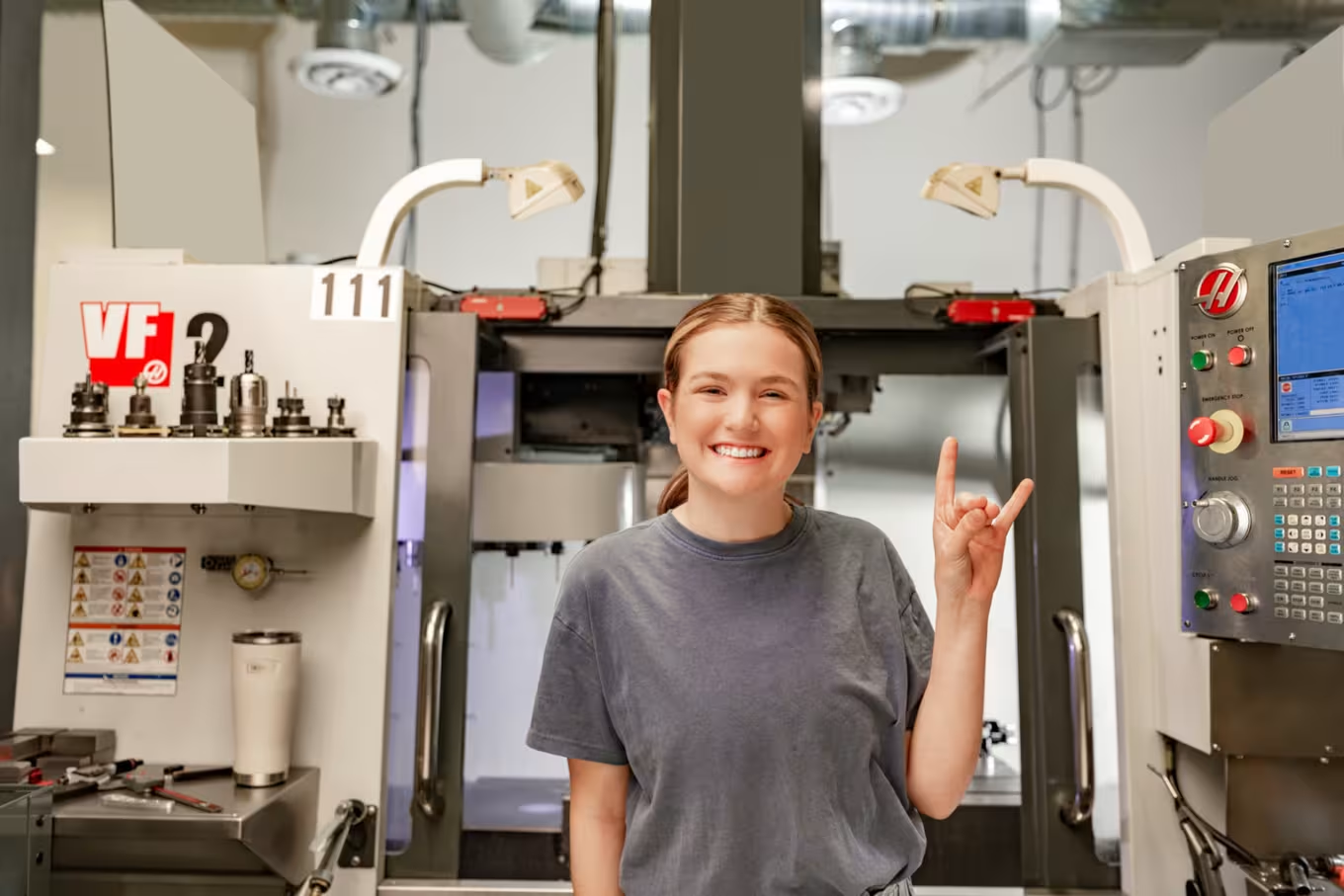
Gain confidence knowing that our CNC program is offered by an accredited university. GCU has held accreditation from the Higher Learning Commission since 1968, ensuring that you receive a quality education recognized by employers and institutions alike. With this accreditation, you can trust that your certificate carries the weight of rigorous academic standards in the field of CNC machining.
Frequently Asked Questions
To help you make an informed decision about pursuing a CNC machinist certificate, we’ve provided a few frequently asked questions below.
This certificate program consists of four courses to be completed within 15 weeks. The CNC machining certificate courses are held on campus and each class is worth four credits — totaling 16 credits for completion.
As the need for skilled professionals in manufacturing and engineering industries rise, obtaining a CNC certificate can help provide you with specialized skills and knowledge essential for the CNC machinist field. According to the U.S Bureau of Labor Statistics (BLS), 356,300 jobs are estimated to open for machinists and tool and die makers from 2023 to 2033.2 Those who are interested in this certificate may also enjoy pursuing a degree in one of GCU’s STEM programs.
Learning how to be a CNC machine operator may be challenging, as with any new skill. It requires a solid understanding of the concepts taught within this certificate program, including machine operations, programming concepts and precision measurement techniques. Ongoing learning, staying current with technological advancements and gaining practical experience are crucial to mastering the craft of CNC machine operation.
According to the U.S. Bureau of Labor Statistics, most machinists need a high school diploma or equivalent, and some will need postsecondary courses.3 Experience in math, blueprint reading, metalworking and CAD/CAM is considered useful for those who want to pursue CNC machine operator training courses and careers; however, these concepts are also part of the curriculum you will be taught.3
According to the BLS, machinists and tool and die makers had a median annual wage of $53,180.4

Unlock Your Potential in CNC Machining
Build CNC machining skills to drive innovation in advanced manufacturing.
1 U.S. Bureau of Labor Statistics (2024, April 3). Occupational Employment and Wage Statistics: Machinists. Retrieved Jan. 6, 2025.
2 COVID-19 has adversely affected the global economy and data from 2020 to 2023 may be atypical compared to prior years. Accordingly, data shown is effective September 2024, which can be found here: U.S. Bureau of Labor Statistics, Occupational Outlook Handbook, Machinists and Tool and Die Makers, retrieved Jan. 6, 2025.
3 U.S. Bureau of Labor Statistics (2024, Aug. 29). How To Become a Machinist or Tool and Die Maker. Retrieved Jan. 6, 2025.
4 The earnings referenced were reported by the U.S. Bureau of Labor Statistics (BLS), Machinists and Tool and Die Makers as of May 2023, retrieved on Jan. 6, 2025. Due to COVID-19, data from 2020 to 2023 may be atypical compared to prior years. BLS calculates the median using salaries of workers nationwide with varying levels of education and experience. It does not reflect the earnings of GCU graduates as machinists and tool and die makers, nor does it reflect the earnings of workers in one city or region of the country or a typical entry-level salary. Median income is the statistical midpoint for the range of salaries in a specific occupation. It represents what you would earn if you were paid more money than half the workers in an occupation, and less than half the workers in an occupation. It may give you a basis to estimate what you might earn at some point if you enter this career. Grand Canyon University can make no guarantees on individual graduates’ salaries. Your employability will be determined by numerous factors over which GCU has no control, such as the employer the graduate chooses to apply to, the graduate’s experience level, individual characteristics, skills, etc. against a pool of candidates.
